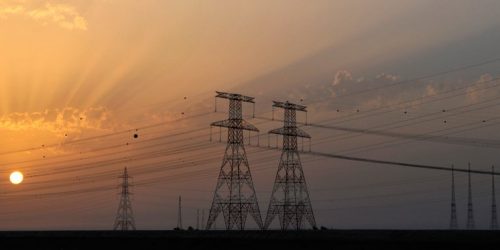Power production almost doubled in June 2020 compared to March when the Covid-19 outbreak crippled economic activities and brought them to a near halt.
The significant growth in power generation indicates that a majority of the factories and industries have returned to work from the four-month-long lockdown.
“Power generation has…almost doubled (soared 92% in June) from the low recorded in March 2020,” Topline Securities’ analyst Sunny Kumar said in a brief report on power production in the previous fiscal year ended June 30, 2020.
Power generation started to decline in March 2020 (down 9% to 6,911 gigawatt-hours/GWh compared to 7,621 GWh in March 2019) largely due to Covid-19-related lockdowns and restrictions, he said while citing data from the National Electric Power Regulatory Authority (Nepra).
A similar trend was also witnessed in April and May 2020 as power generation declined by 14% and 5% respectively compared to April and May 2019.
On a yearly basis, power production edged up by 1% to 13,288 GWh in June 2020 compared to 13,157 GWh in June 2019.
“With industries opening up post-Covid-19 lockdown and subsequent pickup in economic activity, we expect demand for power to increase from here forth,” Kumar added.
FY20 generation
In July-June FY20, electricity generation dipped by a marginal 1% to 121,867 GWh compared to 122,708 GWh in FY19.
Had Covid-19 not emerged in early summer months of March-May 2020, the production would have been better than the one reported for FY20 as the economy (gross domestic product/GDP) was about to enter into a growth phase from the stabilisation phase.
The power production picked up in June (the last month of previous fiscal year) despite the GDP growth being negative 0.38% in FY20.
The installed capacity in the country touched 34,157 megawatt (MW) in June 2020 compared to 30,590 MW in June 2019.
The country, however, continued to witness hours-long load shedding almost every day mainly due to no meaningful improvement in the poor infrastructure of power transmission and distribution network.
Energy sources, cost
The average cost of fuel in power generation was down by 3% to Rs5.97 per unit (kilowatt hours/KWh) in FY20 compared to Rs6.13 per unit in FY19.
“This is mainly due to increase in hydel based generation by 20% in the year (no fuel cost) and increase in coal based power generation at a lower cost of Rs6.1/KWh,” the analyst said.
Hydel generation increased to 32% in the total generation in FY20 compared to 26% in FY19. Similarly, coal-fired power production increased to 21% in fiscal year 2019-20 compared to 13% in the prior fiscal year.
The growth in cheaper production from hydel and coal-fired plants helped reducing reliance on costlier production from natural gas and furnace oil-based plants.
Accordingly, production from gas-based generators reduced to 12% in FY20 compared to 18% in FY19. The generation from furnace oil-based plants dropped to 3% in FY20 compared to 7% in FY19.





